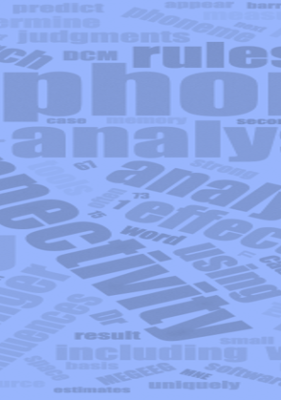“There are any number of questions that might lead one to undertake a study of language. Personally, I am primarily intrigued by the possibility of learning something, from the study of language, that will bring to light inherent properties of the human mind.”
― Noam Chomsky, Language and Mind
The Gow Lab focuses on the role of structure (phonetic, phonological and lexical) in the recognition of spoken words. From our early work on lexical segmentation and the perception of assimilated speech to our ongoing work on the phonotactic processing and neural representation of wordforms, we have always explored ways in which language processes exploit and shape structure.
The cognitive revolution was sparked in part by the notion that language’s strange combination of structural constraints (grammaticality) and ability to generate new forms (generativity) reflected something fundamental about the processing and neural mechanisms that underlie human cognition. First wave cognitive scientists took their inspiration from the rules and representations computational insights of Alan Turing and John von Neumann. Building on those influences, we also borrow from advances in connectionism, complex systems theory and machine learning that speak to the power of general associative processes deployed across complex systems of interacting representations. Think of us as connectionists working without a net to explore the limits of rule-based and associationist approaches for understanding language’s lawful patterning and generativity, and by extension, some inherent properties of the human mind.

